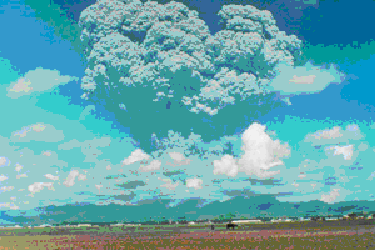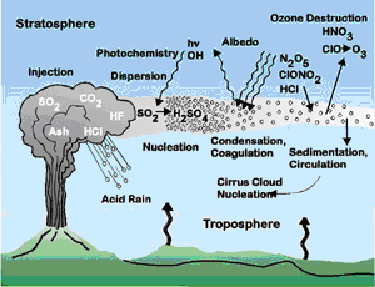
 |
Fume clouds from volcanoes contain water droplets in which acid gases have dissolved. Most of these droplets eventually fall to earth as acid rain, but while they remain in the atmosphere, they can also cause corrosion of aircraft surface materials and engines. Utility lines, communications equipment, farm machinery, vehicles, and other metal objects corrode when exposed to volcanic gases or acid rain. Persistent acid rain causes galvanized nails or lead solder in water catchment systems to deteriorate and release toxic metals into drinking water. Hydrogen fluoride gas emitted from a volcano can attach itself to ash particles.

Eruption of Mount Pinatubo (a volcano in the Philippines Luzon volcanic arc) on June 12, 1991
Large, explosive volcanic eruptions, such as the one shown here, inject water vapor, carbon dioxide, sulfur dioxide, hydrogen chloride, hydrogen fluoride and ash (pulverized rock and pumice) into the stratosphere to heights of 10-20 miles above the Earth's surface. The most significant impacts from these injections come from the conversion of sulfur dioxide to sulfuric acid, which condenses rapidly in the stratosphere to form fine sulfate aerosols.

Impacts of volcanic gases on the environment